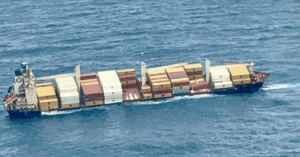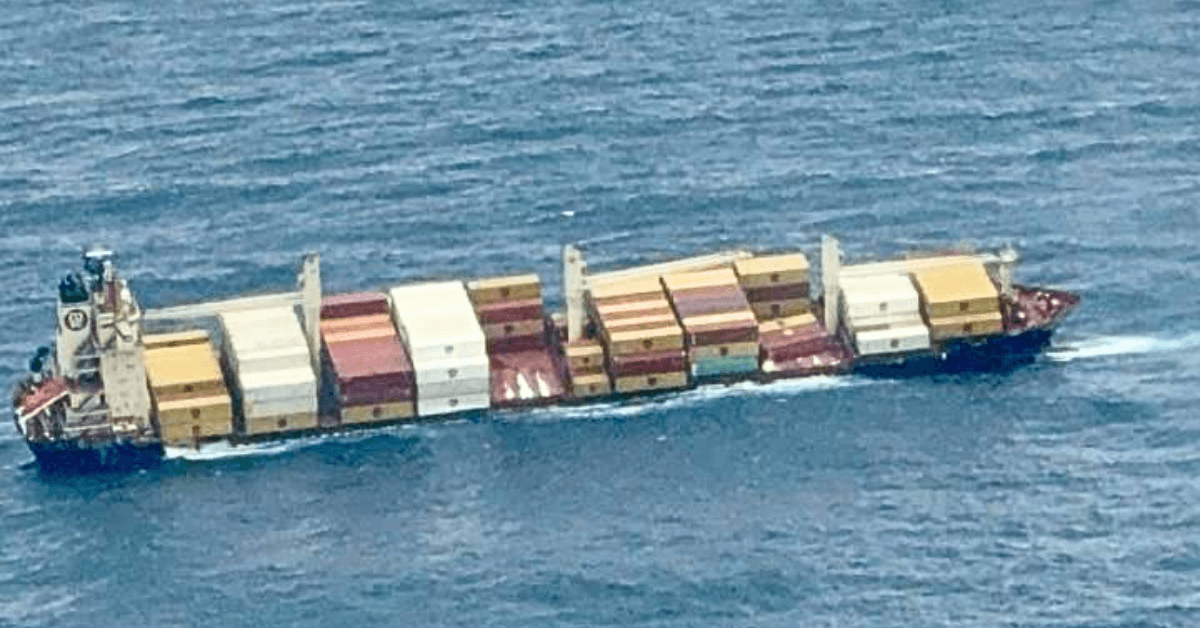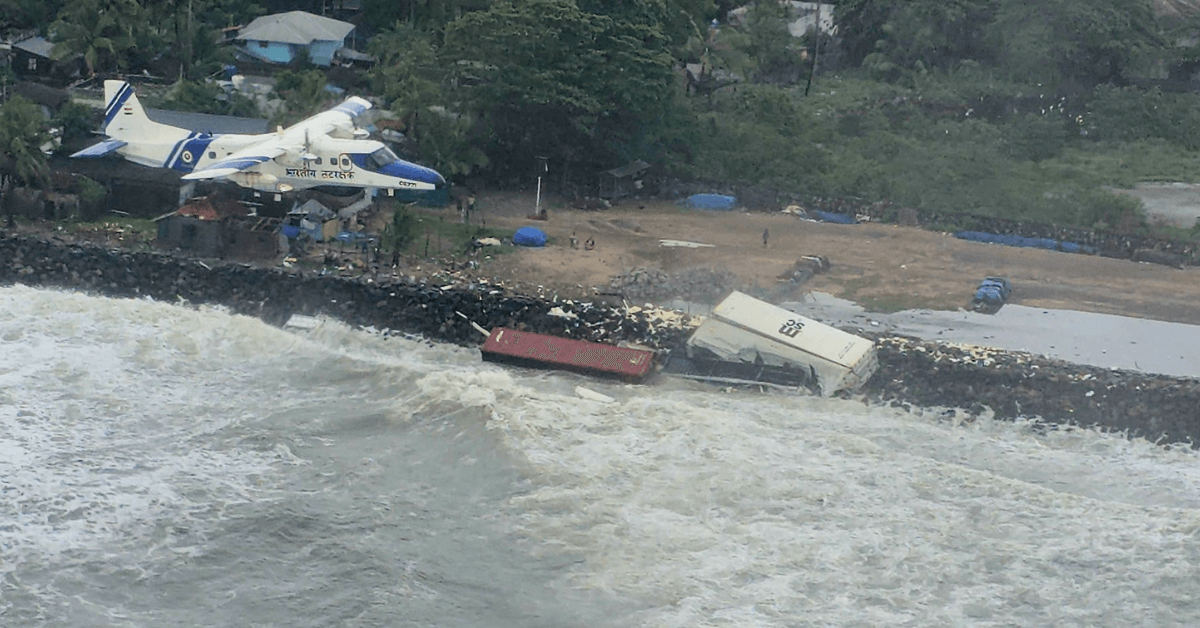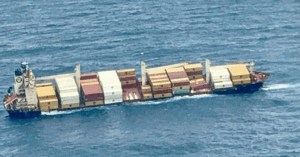
Fishing Boat Crashes Into Cargo Ship Off Gunsan Coast Due To Autopilot Error
May 27, 2025
Shipping Giant MOL Seeks Support From Japanese Government Over EU Sanctions
May 28, 2025

An oil spill has been confirmed off the coast of Kerala after the Liberian-flagged container ship MSC ELSA 3 sank off the coast of Kerala in India. The ship was carrying hazardous cargo, including calcium carbide, and had hundreds of tonnes of diesel and furnace oil on board when it went down.
The Indian Coast Guard (ICG) reported that the vessel sank around 7:50 a.m. on May 25, roughly 15 nautical miles southwest of Alappuzha. Within three hours, a surveillance aircraft spotted an oil slick in the area. By 2 p.m., the slick had already spread across a 2×1 nautical mile stretch, drifting east-southeast at a speed of 1.5 to 2 knots (approximately 3.7 kmph).
The sunken vessel was carrying 640 containers, including 13 marked as hazardous and 12 containing calcium carbide, which can trigger exothermic reactions if it comes in contact with water.
Fisheries experts have warned that this could release heat and pose a serious threat to marine organisms. The diesel and furnace oil, which were stored as engine fuel and not cargo, could severely damage the marine ecosystem, allowing harmful substances like arsenic, mercury, and chromium to enter the food chain through zooplankton, as stated by a marine scientist.
All 24 crew members on board, comprising one Russian, two Ukrainians, one Georgian, and 20 Filipinos, were successfully rescued, according to Coast Guard sources.

The Mercantile Marine Department (MMD) in Kochi has issued a pollution liability warning to the ship’s owners under the Merchant Shipping Act, 1958. Investigators are looking into whether bad weather or issues during container loading led to the ship’s flooding and eventual capsizing.
Even though the ship was 28 years old, an MMD officer said its age likely wasn’t the reason it sank, as merchant ships are regularly serviced every five years. The safety team from MSC in Cyprus is being summoned for further checks.
MMD officials met with the rescued crew but postponed recording statements until May 27 as the crew was still recovering from the traumatic incident. The shipping agency has been directed to submit the cargo manifest and deploy technical teams to recover floating containers and explore the possibility of retrieving the remaining oil.
To contain the spill, the ICG has deployed multiple ships and aircraft, including Offshore Patrol Vessels (OPVs) ICGS Vikram, Samarth, and Saksham, which are using infrared cameras and oil spill dispersants (OSD) to identify and control the spread. The vessels are churning the sea water using hoses and propellers to help mix the dispersants into the slick.
Consequent to sinking of MSC ELSA 3 off #Alappuzha, #Kerala raising #OilSpill concerns. @IndiaCoastGuard launched swift & robust response
#ICG Ship Saksham with #PollutionResponse gear, Dornier aircraft for aerial surveillance & #OSD dispersal.
02 OPVs incl. #ICG Pollution… pic.twitter.com/djER6Q2stO— Indian Coast Guard (@IndiaCoastGuard) May 27, 2025
A Dornier aircraft is conducting aerial surveillance and dispersing OSD across the affected zone. The ICG’s specialised pollution control ship, Samudra Prahari, had also departed from Mumbai and was expected to reach the site by Tuesday.
To ensure the safety of other vessels, ship traffic is being rerouted, and mariners have been warned of floating debris and other hazards near the site.
The Kerala government declared a state-wide emergency and issued warnings to all coastal districts about potential environmental damage. The public, including fisherfolk, has been urged to stay away from the shore and not to touch any cargo or debris that may wash up.
The Coast Guard has advised the state to prepare for shoreline cleanup, though the oil has not yet reached the coast. Officials are coordinating with local and national agencies to prepare for further environmental response.
References: Bloomberg, thehindu
Source: Maritime Shipping News


